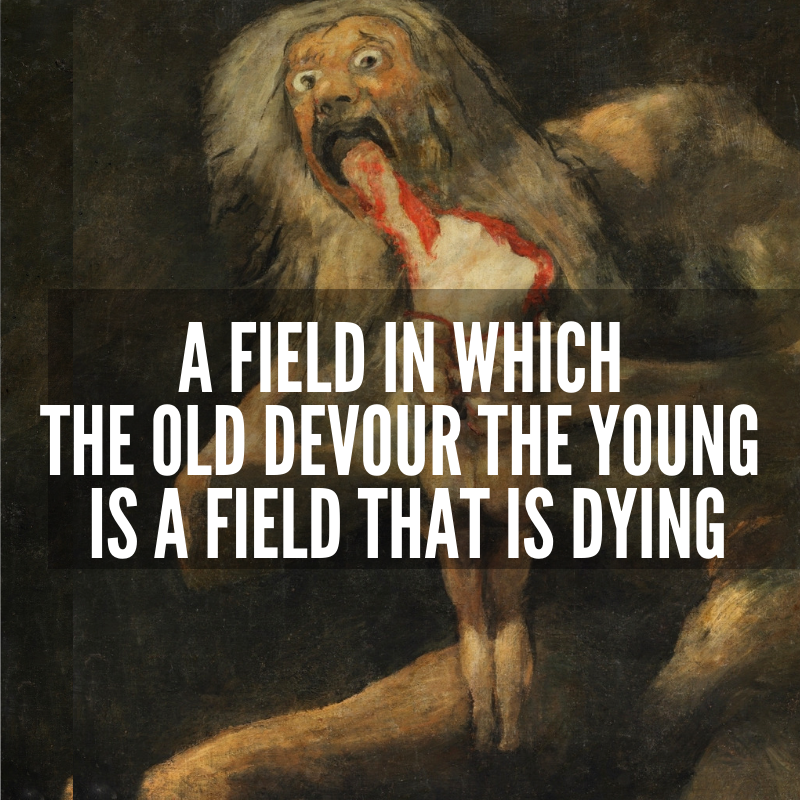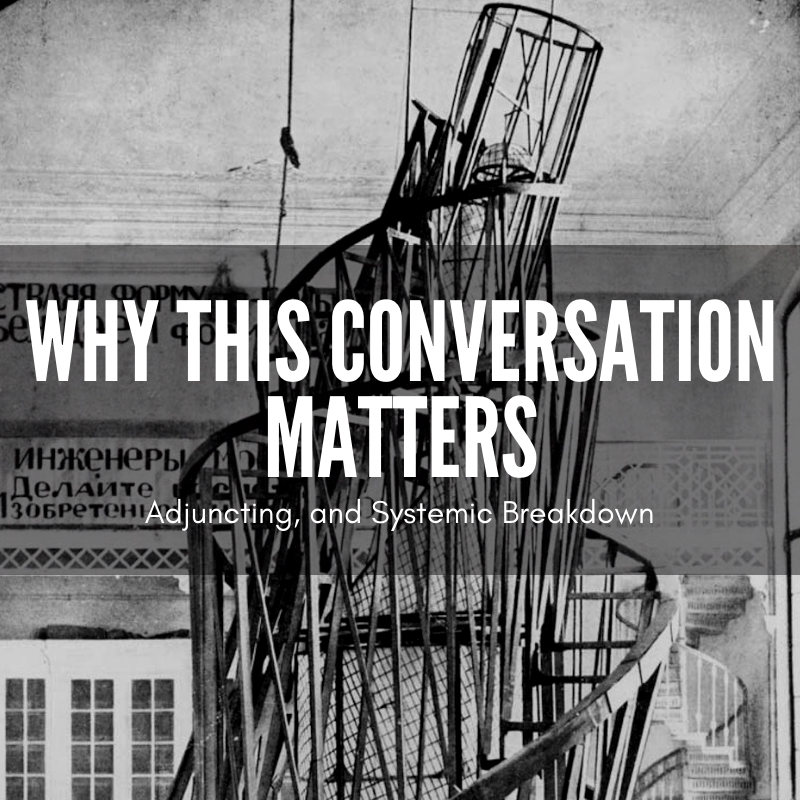Myth of Meritocracies (Revisited)
The Myth of Meritocracies (Revisited)
In this post: Academia is no meritocracy. Neoliberal ideology-driven competition turns us into fools, shame on us.
Next week: .It's too late to save education, and it has been since the 1970s. In this post, I explain why in the context of neoliberal policy and deregulation.
Last week: I talk about my personal evolution through and beyond my art history Ph.D. and the concept of "canon" and "canonical" artists
Just as Roxane Gay so wisely pointed out, academia is no candyland. In that same respect, nor is it a meritocracy. It has been nearly four years since I first discovered that a professor in my department stole my work and passed it off as their own, and effectively ending my career in academia as a result. I posted the first edition of my journey “Why I Left Academia” in the summer of 2017. Suffice it to say, I experienced first hand the damage the mere belief in meritocracies can have, which is probably why Frank Donoghue’s above quote is so deeply relevant for so many of us. After all, the process of leaving academia, which is to say, leaving the cult of meritocracy, is truly something “far worse psychologically than a sensible change of careers.”
Writ large, the evidence that academia is not a meritocracy is damning. Just the sheer volume of academic publications on the structural evolution of higher education spell it out in no uncertain terms (what Frank Donoghue so aptly captures in the above quote). We’re all courtiers to the emperor who has no clothes. Which is to say: the meritocratic structure of academia is as absent as clothing on a nudist beach. And yet, we all remain in service to this myth, to deleterious effects.
“No profession more fervently believes in the myth of meritocracy than academics. The conviction that somehow one’s taken alone ultimately determines one’s place in the hierarchy of academic labor gives rise to a constellation of fantasies: my charisma as a teacher will be properly valued; my completed dissertation or published book will confirm my rare intelligence. Since these epiphanies almost never happen, meritocracies have the effect of making everyone feel insufficiently appreciated. For adjuncts, the academic meritocracy creates a state of mind in which giving up hope signifies something far worse psychologically than a sensible change of careers, and finding a foothold on the first rung of the ladder seems impossible as well.”
The toxic environment of academia is a given. The insane competition driven by the neoliberal ideology of reducing overhead by transforming professors into itinerant laborers, or adjuncts who, on average, make 26k a year with no benefits or job guarantee for the following semester.
And yet, the belief in academia’s alleged meritocracy continues. The longer you remain an adjunct, the less likely you are to ever land a permanent professorship, as if we were bread products with a short shelf life.
As my friend Chris Hartgerink remarked to me the other day, there is an “ideological following” for the desire to change this, to somehow fight for the soul of higher education itself. But, there is no external organizing pressure.
“Academics are... curators of America’s strictest and most idealized meritocracy,” as Frank Donoghue notes in his discussion of academics’ hesitancy around unionization. Curate is a generous word to use here, if you ask me. I would say the zeal with which many academics cling to the belief that they have earned their successes through merit, and that all one needs to have is faith in the system, is not unlike Trump supporters’ fervent denial that Biden won the election fair and square.
In my own case, the pettiness with which my advisor ruined my career, and then my life for quite a while through a frivolous lawsuit that would ultimately be dismissed, in the grand scheme of things, didn’t matter at all, except to point to something endemic to the system itself. The way in which the university and department handled what was a PR nightmare caused by my blog, speaks to this “curation” of alleged-facts to fit their version of what happened to me (for more, see my post “No One’s Interested in Backstories.”
As my blog was shared around in newsletters, social media, et al, emails began to pour in. Many of them were “me too” stories, which always struck me as fascinating when a few months later, Christine Blakely Ford would give her gripping testimony about Kavanaugh. And like her, while my story was heard by the professoriate, it would of course be just as eagerly dismissed through ad hominem attacks about my sanity, motives, and general intelligence. The ferocity with which these attacks were level was as overwhelming as it was fascinating. I had to know the reason behind this cultural toxicity, because even then I knew all of our individual horror stories about graduate school and higher education writ large were but small symptoms of a far-advanced disease.
My only question for any academics still clinging to the halls of the ivory tower is: what are you going to do about it?
Join the resistance— subscribe to my weekly newsletter NSFS: Not Safe for School, I promise witty snark, critiques of education and its systemic inequality and racism, and other stories from my Post-PhD life.
—
Related Posts:
In this week’s NSFS newsletter, I dish out some academic realness on the Rand Corp’s recent study on the widening income inequality in the U.S. and my pandemic brain’s musings on Netflix’s The Crown’s rendition of Margaret Thatcher. Subscribe here if you’re interested to receive ed rants and new post updates!
What I’m reading (aka my receipts):
If you haven’t read it yet, I highly recommend Gay’s 2010 essay “The Academic Life is Not Candy Land”).
Wendy Brown’s “Neoliberalized Knowledge” is a good place to start from: History of the present, 1(1) 113-129.
This Nature article by Alon Zivony, “Academia is not a meritocracy.” Nature Hum Behav 3, 1037 (2019). https://doi.org/10.1038/s41562-019-0735-y
He says: “Academia has much to lose from failing to live up to its meritocracy ideal. Inequality inevitably leads to homogeneity of viewpoints and experiences, which limits our ability to ask new worthwhile questions”
Frank Donoghue, The Last Professors: The Corporate University and the Fate of the Humanities, New York: Fordham University Press, 2008
Derek Bok Universities in the Marketplace: The Commercialization of Higher Education. Princeton University Press, 2011
John Smyth, The Toxic University: Zombie Leadership, Academic Rock Stars, and Neoliberal Ideology.











